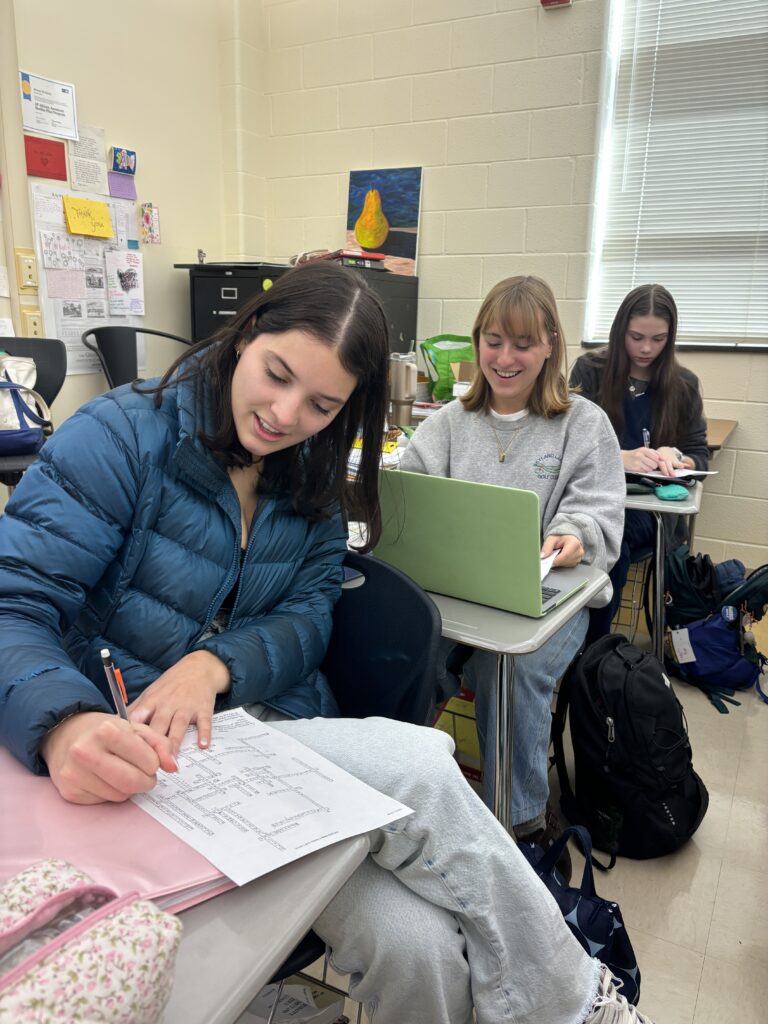By Jackson Colo and Caroline Lovett
Staff Writer and Features Editor
College Board’s evergrowing slew of Advanced Placement (AP) classes continues to expand in many different ways. One of the newest courses, AP African American Studies, broadens its reach to high schools across Winston-Salem Forsyth County. Among the first to teach the course is Akwete McAlister, a social studies teacher at Career Center High School.

“This is my second year teaching [African American Studies],” McAlister said. “Initially, I was very hesitant to teach the course, but I have always been very interested in African American Studies and have learned a lot by teaching the class and engaging with my students.”
African American Studies encompasses key topics from early African kingdoms to ongoing challenges, achievements, and movements of African American communities.
“The course looks at the African American experience in the diaspora of the Western world,” McAlister said. “We primarily look at enslaved Africans who came to the United States. While we mainly focus on the U.S., we also look at other places around the world like Brazil and Jamaica.”
As McAlister’s love and interest in the course increases, she also reflects on how being a black woman has impacted how she perceives the course and the students in her classroom.
“I think that my perspective as a black woman probably does show up in what I focus on or how I teach,” McAlister said. “As does any teacher who teaches any course, it’s important for a teacher’s personality to show up in the classes they teach.”
The AP African American Studies class offers a new perspective and understanding of many well-known historical and modern events. The course allows a more diverse group of students to understand specific concepts and material not taught in other classes, such as studying African American art.
“It’s interesting to me that I thought that my classes were going to be filled with mostly all African American students,” McAlister said. “While the class has a large number of African American students, there are also a lot of students who aren’t African American. I’m very pleased that those students are taking interest in the course.”
It’s important to recognize that this class is not merely a history course. It dives deeper into aspects of all types of learning.
“It’s an interdisciplinary course that looks at the African American experience,” McAlister said. “A lot of people think it is simply a history class. It also covers literature, art, music, visual art, poetry, and expression, as well as politics. It looks at the political and social sciences aspects as well.”
McAlister’s passion for AP African American Studies is, without a doubt, a key contributor to the class’s growth in interest and popularity throughout the past two years. Her passion and interest from students and teachers across the country have allowed AP African American Studies to grow throughout the U.S. in recent years.
“I think it took time for people to realize that [African American Studies] was important,” McAlister said. “It’s not necessarily included in-depth in World History, in the U.S. History, and even in European History … I think it is the natural progression of learning and wanting to know more.”